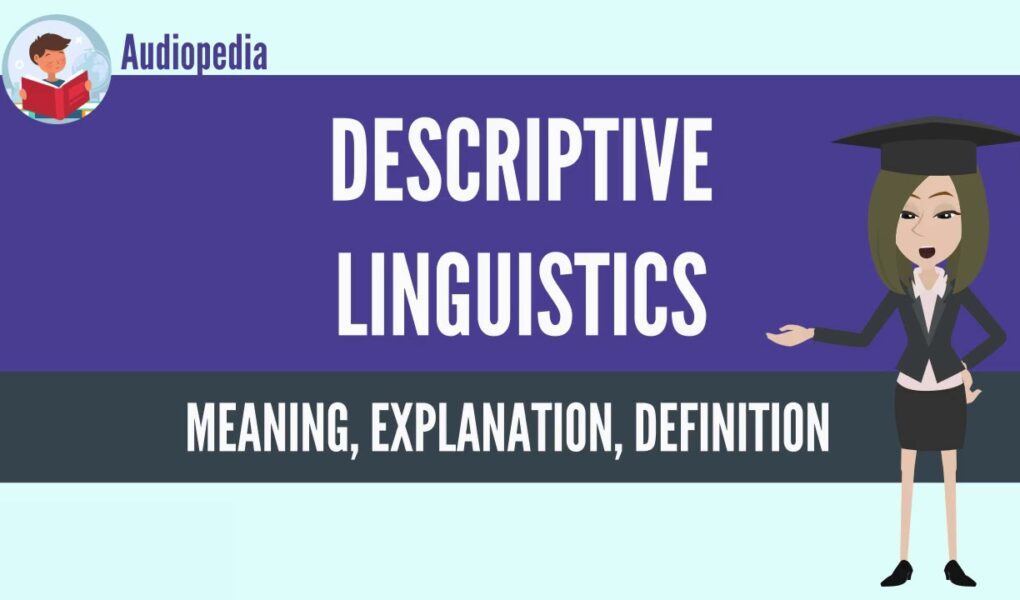Audiopedia
What is DESCRIPTIVE LINGUISTICS, What does DESCRIPTIVE LINGUISTICS mean, DESCRIPTIVE LINGUISTICS meaning, DESCRIPTIVE LINGUISTICS definition, DESCRIPTIVE LINGUISTICS explanation
Part of a series on
Linguistics
OutlineHistoryIndex
Subfields[hide]
Acquisition Anthropological Applied Computational Discourse analysis Forensic Historical Lexicography Morphology Neurolinguistics Philosophy of language Phonetics Phonology Pragmatics Psycholinguistics Semantics Sociolinguistics Syntax
Grammatical Theories[hide]
Cognitive Constraint-based Dependency Functional Generative Stochastic
Topics[hide]
Descriptivism Etymology Internet linguistics LGBT linguistics Linguistic anthropology Origin of language Origin of speech Orthography Prescriptivism Second-language acquisition Structuralism
Linguistics portal
vte
Anthropology
OutlineHistory
Types[show]
Archaeological[show]
Biological[show]
SocialCultural
[show]
Linguistic[hide]
Anthropological Descriptive Ethnological Ethnopoetical Historical Semiotic Sociological
Research framework[show]
Key concepts[show]
Key theories[show]
Lists[show]
Moai Easter Island InvMH-35-61-1.jpg Anthropology portal
vte
In the study of language, description or descriptive linguistics is the work of objectively analyzing and describing how language is actually used (or how it was used in the past) by a group of people in a speech community.
All academic research in linguistics is descriptive; like all other sciences, its aim is to describe the linguistic world as it is, without the bias of preconceived ideas about how it ought to be.[1] Modern descriptive linguistics is based on a structural approach to language, as exemplified in the work of Leonard Bloomfield and others.[not verified in body]
Linguistic description is often contrasted with linguistic prescription, which is found especially in education and in publishing. Prescription seeks to define standard language forms and give advice on effective language use, and can be thought of as a presentation of the fruits of descriptive research in a learnable form, though it also draws on more subjective aspects of language aesthetics. Prescription and description are complementary, but have different priorities and sometimes are seen to be in conflict. Descriptivism is the belief that description is more significant or important to teach, study, and practice than prescription.
Source: Wikipedia.org
